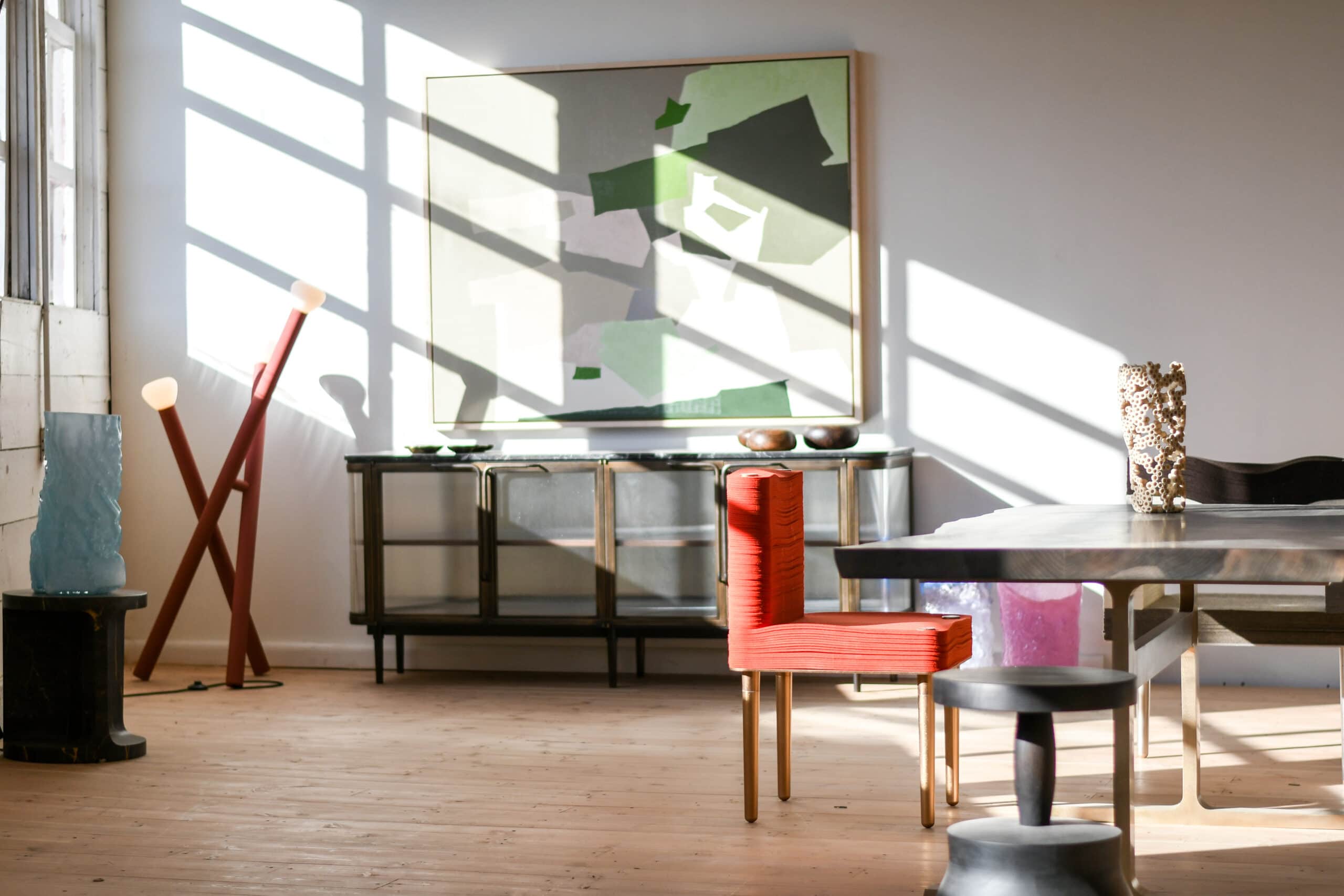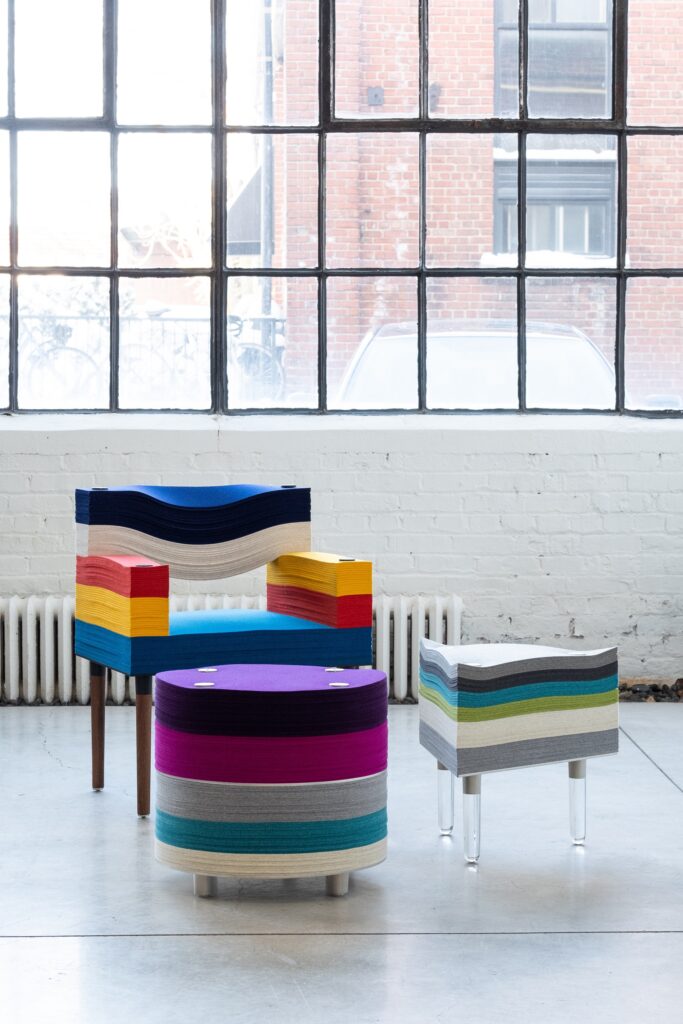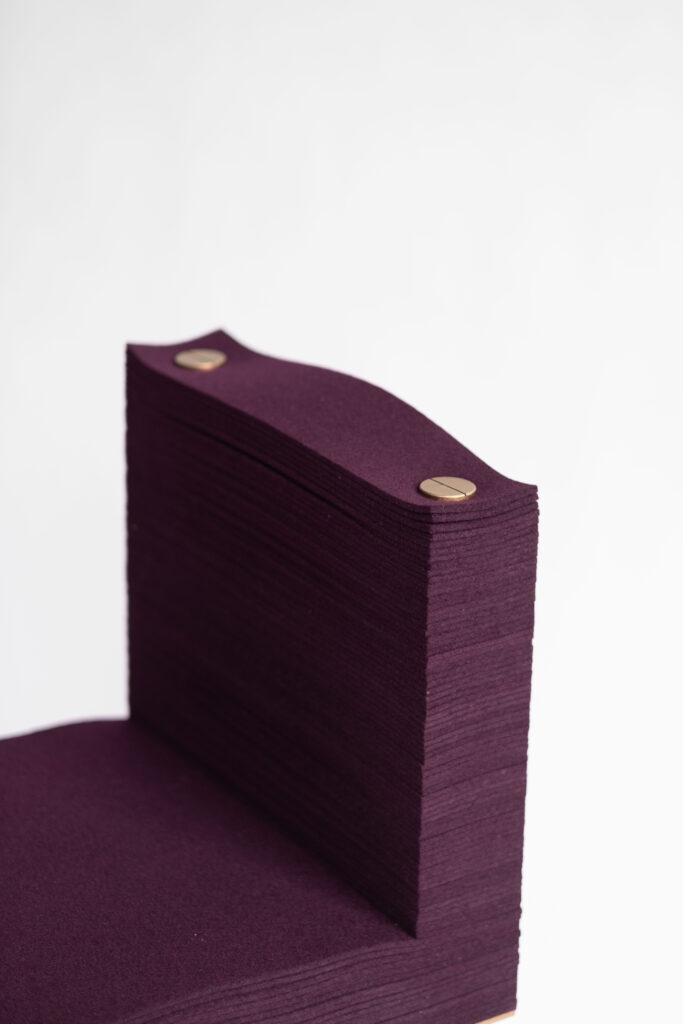“Good design is not a colour of the year or a Pinterest board,” says Jeff Forrest, the founder of Stacklab, a Toronto-based multidisciplinary studio that handles both residential/commercial projects, and object design. “It’s also looking at problems objectively and responding with appropriate measures.”
For Forrest, those measures include a commitment to working with regional experts in material, craft, science, and technology. That’s why his team regularly tours factories and industrial facilities to mine data that might inspire new product.
One venture evolved out of a study of waste in the textile industry, into a plan to use surplus wool felt from design and industrial processes in stacked layers to make chairs, side-tables, benches, and stools.
The collection addresses three issues for Forrest: it responds to a waste problem, enables manufacturers to profit from a formerly worthless material while freeing up valuable real-estate, and gives second life to a flexible, sustainable textile.
The dimensions of felt remnants, sourced from two manufacturers—one in upstate New York and one in Toronto—are fed into a computational design tool that uses an algorithm to catalogue offcuts as “good” or “bad” pieces. The latter might include those that are too small or can’t be readily cut into usable pieces. As a further variable, good/bad is a moving target, says Forrest, because the yield required for a small stool is different than that needed for a chair.
Forrest concedes that without a die-cut, shapes can lose fidelity and accuracy to the original form. But that doesn’t offend him: he doesn’t think perfection is key to either the beauty and functionality of the pieces.
“Felt is an organic material. That means every piece is a little different from the next,” he explains, adding that not only does slight inconsistency create an appealing profile and texture along the elevation of a chair, it helps it better contour to the body of the user.
Felt works best, he says, in chairs you might sit in for a few hours—an occasional or dining chair, perhaps. “If I wanted to make a recliner, I wouldn’t use felt. It’s never going to feel like a mattress.”
Pieces start at about $3,000. They can be ordered directly through Stacklab and Alpenglow Project, a contemporary design and art gallery in Vancouver.
The collection has been well-received, says Forrest, and he’s encouraged by the attention.
“I am interested in the idea that when we buy something, we vote with our dollars,” says Forrest, “and that everything we surround ourselves reflects our values. I want whatever I put out into the world to have a strong value proposition. It’s a way to slowly change the way people think about design.”







